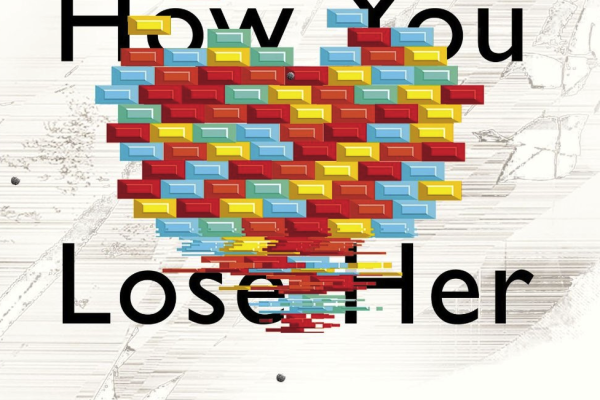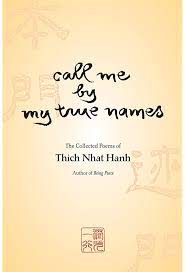
Riverhead, 2012.
Review by Alexandra Watson
Junot Díaz’s new collection of short stories, This is How You Lose Her, is proof that easy reading is hard writing.
The book offers fast-paced, humorous stories about love and betrayal, told by a conversational, earnest narrator — quality entertainment for the reader. Yet Díaz has said in interviews with the New York Times and others that he worked on This is How You Lose Her for sixteen years before it was published by Riverhead this September. He developed its themes in tandem with his first story collection, Drown (1996) and drafted the stories alongside his Pulitzer Prize winning novel The Brief Wondrous Of Oscar Wao (2007).
Where do these two experiences of author and reader diverge? The task of an expert storyteller, much like that of an expert chef or mixologist, is to blend elements to create a distinct, unique product with a flavor all its own — not defined solely by its parts. Junot Díaz accomplishes this through language and content, layering modes and themes in a way that is complex, yet extremely palatable.
Díaz has the ability to blend diverse modes, code-switching between academic English, street English, Spanish, Dominican Spanish. Few other authors could pull off a sentence such as: “You pass each other a couple of times a week and she’s a pleasure to watch, a gazelle really — what economy, what gait, and what an amazing fucking cuerpazo.” Distinct linguistic modes flow seamlessly in This is How You Lose Her, creating a unique language that is funny and surprising without being jarring. This tendency may help explain Díaz’s skyrocketing literary popularity: he is proving to his diverse readership that a multiplicity of identities can blend into a rich, complex singularity.
Elements of the stories are salacious and intriguing: the dramatic promise of sex, love and infidelity; the familiarity of the recurring character/narrator Yunior (whom readers will also recognize from Oscar Wao and Drown). The language of sexuality is blunt and often deliberately crude to illuminate the mindset of the characters, as when Yunior’s brother Rafa “had his hand so far up her skirt it looked like he was performing a surgical procedure;” and when the Yunior of the first story, “The Sun, the Moon, the Stars,” is at his most immature in his dealings with women: “but other times she does want it and I have to touch her pussy…And she’ll turn her head, which is her way of saying, I’m too proud to acquiesce openly to your animal desires, but if you continue to put your finger in me I won’t stop you.” Yunior’s catastrophic relationships are jet fuel to the reader: they propel her forward through these nine stories, which are connected by theme and characters, but not by chronology or logical progression.
While there is a pleasure in letting This is How You Lose Her sweep you away, the text demands a closer look at the complexities of larger concerns: betrayal and the difficulties of trust (“The Sun, the Moon and the Stars,” “Alma,” “The Cheater’s Guide to Love”); the difficulty of true intimacy (“Flaca,” “Miss Lora”); the impact of infidelity on families and community (“Otravida, Otravez,” “Invierno”). Overarching all of the stories are the questions of masculine interiority, represented by a protagonist/narrator who is nothing if not honest about his emotions and notions; and the centrality of misogyny to both North American and Caribbean cultures, represented by the treatment of the women by the protagonist and the male members of his family. The narrator expresses an inability to extract himself from the tradition of being a “sucio” or womanizer: “You had hoped the gene missed you, skipped a generation, but clearly you were kidding yourself” (“Miss Lora”). The line has humor and charm, but it strikes a deeper chord: How does one escape inherited vice, even when he knows these tendencies are problematic?
In This is How You Lose Her, the humor and fun is always tempered by the awareness that there is always something more dangerous lurking. A heartbreak and depression so profound it “feels like you’re being slowly pincered apart, atom by atom.” “The begging, the crawling over glass, the crying” of trying to restore a relationship that you yourself are to blame for destroying. The debilitating cancer of Rafa, Yunior’s older brother, who invokes pity despite his abusive, misanthropic tendencies. The cheating father who, in the remarkably touching “Invierno,” makes his children who have just arrived in New Jersey from Santo Domingo remain indoors all winter, ostensibly because of the cold but really because of his desire for complete control over them. The impoverished Dominican family in “The Cheater’s Guide to Love” whom Yunior’s friend Elvis leaves behind when he finds out he’s not the father of the child he came there to see. These elements of the stories give the collection its depth, placing sorrow alongside the humor of the absurdities of life and relationships.
This is How You Lose Her is a collection of stories, though its charting of themes and characters — especially the progress of the cheater, Yunior — and the pace of writing, may tempt the reader to consider it as a novel. This reading will lead to disappointment, for although Yunior matures and develops throughout the stories, the idea of a narrative arc is missing, and the stories of romances and infidelities start to feel a little similar. At the same time, consideration of the collection as an indivisible whole denies the skill of the perspectives, which shift between third person, distinct uses of the second person, and first person. The cohesion of this book speaks to Díaz’s genius as a writer — to make distinct things come together seamlessly — and contribute to the feeling that This is How You Lose Her is an “easy,” pleasurable read. But it is just as much a testament to his skill that all of these stories stand alone and have deeper elements to explore. This quality, along with the refreshing, delightful, demanding language — make this collection promise to be even better with successive reads.
Alexandra Watson is an MFA candidate in fiction at Columbia University.




